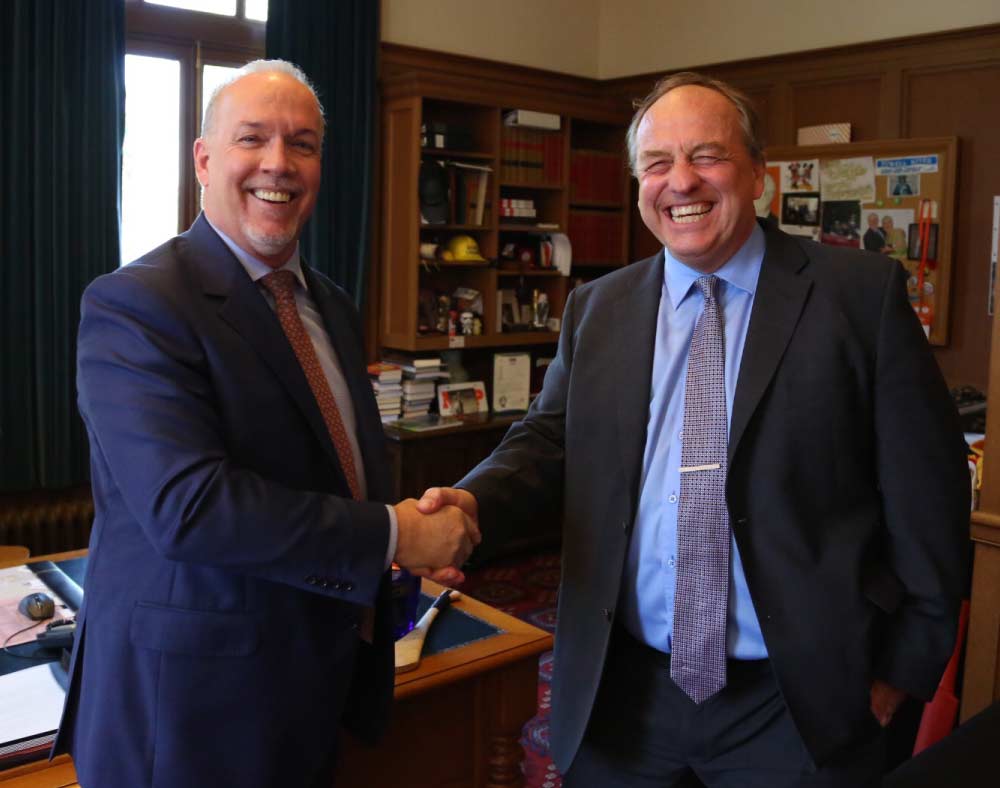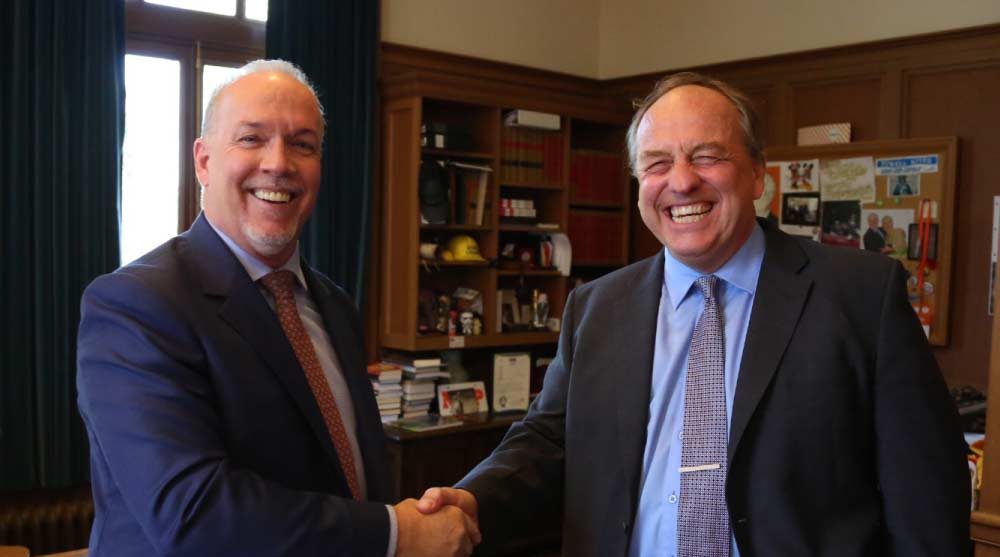
Future uncertain as province adopts minority government
By Mercedes Deutscher, News Editor
The province is at a crossroads, as shown on May 9 when the first round of provincial election results came out too close for the BC Liberals and BC NDP to concede.
It took two weeks for the election results to be finalized, after initial results allocated 43 seats to the then-incumbent Liberals, 41 to the NDP, and a record-breaking 3 seats to the Green Party.
Several ridings had results so close that they could not decisively be called for a party before the official re-count and the counting of advanced and absentee ballots, as was the scenario in Courtney-Comox (with an early NDP lead of 9 votes) and Maple Ridge-Mission (with an early NDP lead of 120). Other close ridings included Coquitlam-Burke Mountain, Richmond-Queensborough, and Vancouver-False Creek, with margins of 560 votes or less separating the winning party from the second place party.
Although the first round of results spelled a Liberal minority government, BC NDP leader John Horgan refused to concede defeat prior to the final results.
“We’ve waited 16 years for a new government and we have to ask you to wait a little bit longer, until all the votes are counted and the final results of this election are known,” Horgan said on his election night speech. “But this is what we do know: A majority of British Columbians voted for a new government, and I believe this is what they deserve.”
When no seats changed hands after the absentee ballots and recounts were finalized on May 22, it determined an initial victory for the BC Liberals. However, they fell one seat short of the 44 seats required to form a majority government.
The last minority government to form in BC was in 1952, when the Social Credit Party assumed a narrow victory over the Co-operative Commonwealth Federation, which would later become the NDP.
With the NDP only two seats behind the Liberals, the three-member Green Party found themselves with the power to determine how the new BC government would function.
“For us, the single most important thing to do is to ensure good public policy is put forward—and we are above the partisan rhetoric. We want to ensure that the values we brought to the legislature, which were clearly supported by a large number of British Columbians, actually flow over into any working arrangement we have with any of the other political parties,” BC Green leader Andrew Weaver said to the Vancouver Sun after the initial results.
Negotiations with the Green Party started immediately after the first wave of election results were announced. As the balance of power, Weaver and his party made three demands in order for them to consider an alliance with either the Liberals or NDP—to be given official party status (which traditionally is not given to a party in BC legislature if they hold fewer than four seats), to reform BC’s current first-past-the-post electoral system to one based on proportional representation, and to ban “big-money,” such as corporate donations, in future BC election campaigns.
The Green Party could have chosen to side with the Liberals and aid them in forming another majority government. They could have remained unaligned, leaving the province with a Liberal minority government. They also could have formed an alliance with the NDP, creating a coalition that would have pushed the NDP into power.
On May 29, the Green Party announced that they had worked out an alliance with the NDP, and that they would support the NDP in supply and budget issues. However, Weaver made it clear that this was not a NDP-Green coalition. Still, the NDP and Green parties unanimously voted in favour of the alliance in caucus.
On May 30, one day after the NDP and Greens announced their alliance, BC Liberal leader and incumbent premier Christy Clark announced that she planned to keep her position as the party’s leader, after speculation that she may resign.
“If there is going to be a transfer of power in this province, and it certainly seems like it will be, it shouldn’t happen behind closed doors. It should happen in public. It should happen in the people’s House, with 87 members elected by British Columbians making that decision,” Clark said to CBC.
BC legislature is scheduled to resume sometime in June. When it does, a confidence vote will take place to determine who will govern the province. It remains uncertain if Clark will continue holding her position as premier, or if the position will be assigned to Horgan by the lieutenant governor. Still, Clark made it clear that even if she were to lose her spot as premier, she would continue to lead the BC Liberal’s as the Leader of the Opposition.
“We have reviewed the constitutional advice and the historic precedents […] and we will live up to those responsibilities we have. We have a duty to meet the House and to test its confidence […] and I intend to do that in very short order,” Clark said in an announcement following the NDP – Green alliance decision. “The Lieutenant-Governor’s decision would be, should my government not meet the test of confidence in the House […] she would ask, I think, the NDP, as the party that has the second-largest number of seats, whether they can govern.”
For now, the province lies in limbo, uncertain of who will govern after a rocky and close election.

